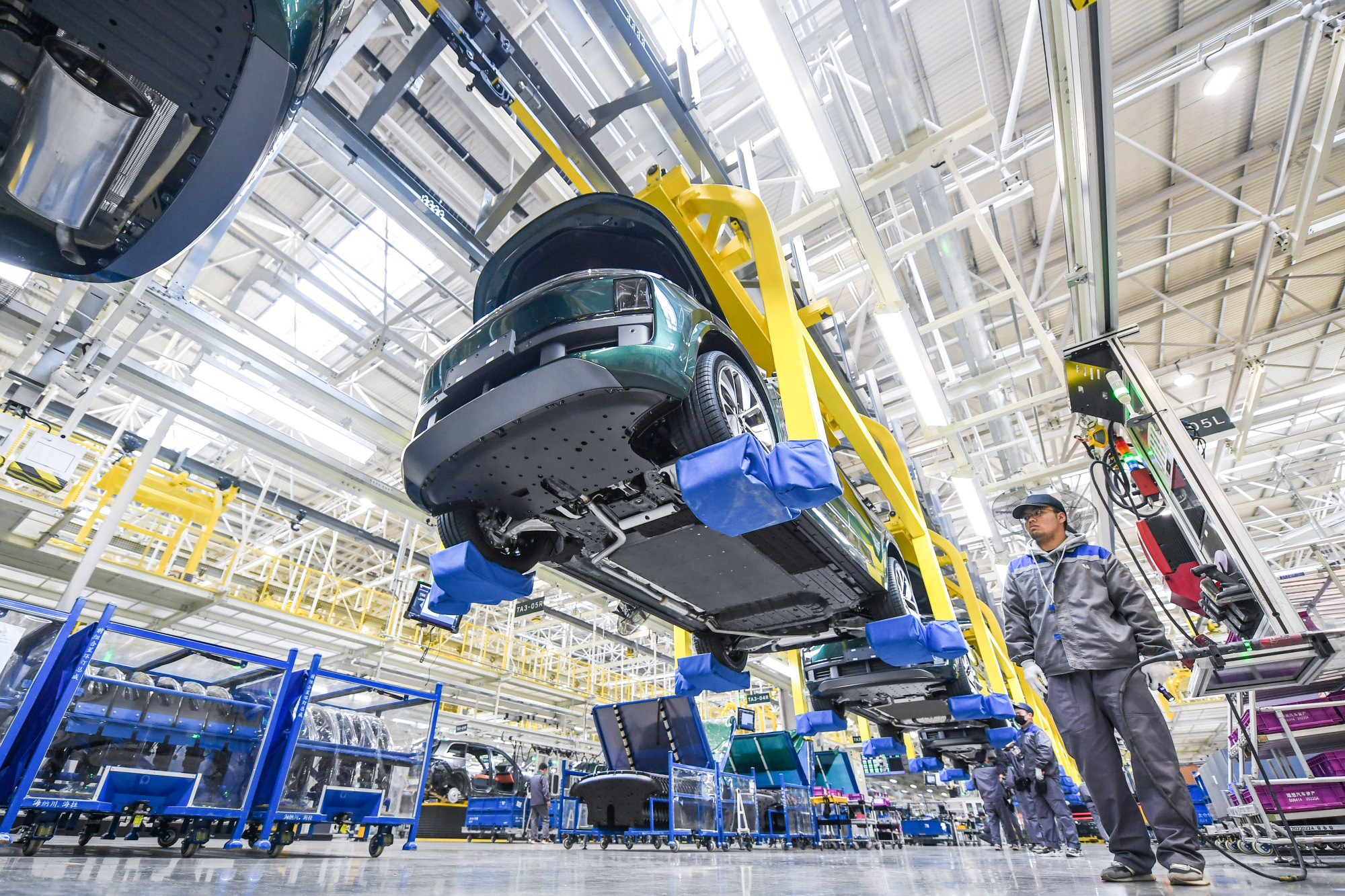Chinese-made electric cars will leverage on their low cost structures and extend their market share in Europe despite the EU’s punitive tariffs of up to 38 per cent, and any moderation in the trade dispute would be the icing on the cake for the world’s largest car exporting country.
Analysts said the duties, in line with expectations, are not enough to shut Chinese EVs out of the EU since BYD and some of its domestic peers enjoy a huge production cost advantage over their European rivals.
The rates will be on top of the existing 10 per cent tariff that is applied to pure electric cars made in China. Plug-in hybrid vehicles and battery car components are exempt from the additional levy.
“The additional tariffs will not deter Chinese EV makers since Europe is deemed as an overseas market with strategic importance to them,” said Gao Shen, an independent analyst in Shanghai. “Beijing’s talks with EU officials may also help at least lower the rates.”

“Despite limited information, the decision to hold talks over EV tariffs by both parties might be a positive move,” Vincent Sun, equity analyst at financial services firm Morningstar, said in a research note on Monday. “Both parties are taking an open attitude, which likely indicates that Chinese EV assemblers may be charged at a lower rate than previously announced. Regardless of the results of such talks, we do not think the import levies will derail Chinese EV manufacturers’ expansion plans to export and in the midterm set up factories in Europe.”
Analysts say most of the leading carmakers will take a marginal hit given their competitive production costs.
“BYD expects the impact to be manageable given that it currently enjoys a higher average selling price and volume price mis in the EU,” said Ray Kwok, an analyst at CGS International. “Furthermore, its factory in Hungary will begin production in the second half of next year, which will help it to avoid EU tariffs.”
Shenzhen-based BYD is subject to a 17.4 per cent punitive tariff. The company has a sustainable 25 per cent cost advantage over traditional marques in the EU, according to a teardown report published by UBS last September.
“For BYD, we believe an additional 17.4 per cent tariff may be manageable given its significant cost advantage versus peers,” the Swiss bank said in a research note last month, adding that the duties would prevent BYD’s dominance in the EU market.
EVs made in China, which include battery-powered units under international brands such as Tesla’s Model 3 and Model Y vehicles assembled at its Shanghai Gigafactory and Volvo cars, accounted for about 20 per cent of pure-electric car sales in the EU last year, according to European lobby group Transport & Environment (T&E).
Although the duties will provisionally come into effect on July 4, the EU and China could reach an agreement to solve the problem as they are now holding talks on the EV tariffs. The final decision will be made in November after consultations between EU members and Chinese EV makers.
EU carmakers who assemble pure-electric cars in China are likely to suffer as they may face higher tariffs if they want to export their cars assembled by their Chinese ventures to the European market.
At present, Hungary, Germany and Sweden are opposed to the curbs. They would need the backing of at least 12 other members to veto the plan.

